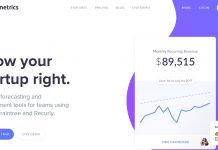The Rise of AI Startup Ideas in 2025
Artificial intelligence has moved from being an experimental technology to becoming the backbone of new businesses across industries. As we enter 2025, many entrepreneurs are searching for practical AI startup ideas 2025 that can generate consistent revenue. The question is no longer whether AI has potential, but rather how founders can identify the most profitable applications and execute them effectively.
Why AI Startups Are Different
AI startups differ from traditional technology ventures because they often rely on data-driven models and automation. Unlike businesses that focus only on software solutions, AI-based companies create value by processing large amounts of information, predicting outcomes, and automating tasks. This makes AI startup ideas 2025 appealing for entrepreneurs who want to scale quickly with lower operational costs.
What Makes AI Startup Ideas Profitable
Not all concepts in artificial intelligence translate into revenue. The most profitable AI startup ideas in 2025 combine three critical factors: solving a real customer problem, using automation to reduce costs, and offering measurable improvements over existing solutions. For instance, AI-driven fraud detection tools save businesses money by identifying threats in real time, while AI-powered marketing platforms improve customer targeting and increase sales. These examples show how AI startup ideas 2025 are not just exciting, but also financially viable.
The Importance of Timing in 2025
Timing matters for every business. Many of the technologies that were considered futuristic a few years ago are now available to small teams at affordable costs. Cloud computing platforms, open-source models, and no-code development tools make it possible for startups to enter the AI industry without massive funding. This is why 2025 is expected to see a surge in new AI startup ideas, particularly from founders who recognize opportunities in emerging markets.
Key Sectors Driving Growth
Entrepreneurs exploring AI startup ideas 2025 should pay attention to industries where demand is already established. Some of the most promising sectors include:
-
Healthcare: AI virtual assistants and diagnostics tools
-
Finance: Automated fraud detection and financial planning
-
Marketing: AI-based personalization and customer engagement
-
Education: Adaptive learning platforms
-
E-commerce: AI chatbots and smart recommendation engines
Each of these industries has clear customer demand and proven monetization models, making them prime targets for AI startup founders in 2025.
Opportunities and Challenges Ahead
While opportunities are abundant, entrepreneurs must also understand the challenges that come with AI startup ideas 2025. Regulations around data privacy, the cost of acquiring high-quality training data, and competition from established tech companies all pose potential risks. However, these challenges also create room for innovative startups to differentiate themselves. For example, focusing on niche markets or building AI tools for underserved regions can help new businesses gain traction without competing directly against large corporations.
What This Guide Will Cover
This mega post is designed to help you navigate the world of AI startup ideas in 2025 with a clear and practical approach. Each section will focus on a specific startup concept, exploring how it works, why it is profitable, and what steps you can take to launch it. By the end of this guide, you will have a strong understanding of where to focus your efforts if you want to build an AI startup that actually makes money.
AI Agent That Turns Customer Testimonials into Multiple Formats
Understanding the Concept
One of the most creative AI startup ideas 2025 is an AI agent that takes customer testimonials and automatically repurposes them into multiple content formats. Customer testimonials are among the most trusted marketing tools, but many businesses fail to use them beyond a few lines on their website. By automating the transformation of testimonials into blogs, videos, case studies, or social media posts, startups can provide companies with a steady flow of marketing material without the burden of manual editing.
Why This Startup Idea Works
The strength of this idea lies in its direct link to revenue generation. Businesses rely on customer trust, and testimonials are proven to influence purchasing decisions. However, gathering, editing, and publishing testimonials in different media formats is time-consuming. An AI agent solves this by processing raw testimonial data—whether text, audio, or video—and converting it into polished, professional marketing assets. This makes it one of the most practical AI startup ideas 2025 for entrepreneurs looking to offer a service that delivers measurable results.
How the Technology Functions
An AI testimonial agent would typically include natural language processing (NLP) for analyzing sentiment and tone, generative models for rewriting and formatting, and text-to-speech or video tools for creating multimedia content. The process could look like this:
-
Input raw testimonial data (text, voice recording, or video).
-
The AI extracts key themes, customer emotions, and product benefits.
-
The system generates multiple outputs, such as:
-
A short quote for a landing page
-
A detailed case study for a blog post
-
A social media caption tailored for platforms like Instagram or LinkedIn
-
A short promotional video with voiceover and text highlights
-
This automated pipeline would allow businesses to maximize the impact of each customer testimonial with minimal effort.
Monetization Opportunities
Profitability is at the heart of evaluating AI startup ideas 2025. An AI testimonial agent could be monetized in several ways:
-
Subscription model: Companies pay a monthly fee to process a set number of testimonials.
-
Pay-per-use: Small businesses can pay a one-time fee for each testimonial conversion.
-
Enterprise licensing: Larger corporations could purchase full access to customize the tool for in-house use.
-
White-label solution: Marketing agencies could rebrand the AI agent and offer it as part of their services.
Each of these approaches provides recurring or scalable revenue, making this concept financially sustainable.
Who Needs This Service
The target audience for this AI startup idea is broad, covering nearly every business that sells products or services. Key markets include:
-
E-commerce businesses that rely on customer reviews
-
SaaS companies that use case studies to drive conversions
-
Small businesses with limited marketing staff
-
Digital marketing agencies looking for efficiency tools
-
Personal brands and influencers seeking to amplify testimonials
The versatility of the solution ensures strong demand across industries, increasing its chances of profitability.
Challenges to Consider
Like many AI startup ideas 2025, this one comes with challenges. The quality of AI-generated content must be high enough to maintain authenticity. Customers may be skeptical if testimonials appear too polished or fabricated. Data privacy is another concern, as businesses must handle customer feedback responsibly. Startups must also consider how to differentiate their service in a competitive content automation market.
Why This Idea Has Long-Term Potential
The marketing industry shows no signs of slowing down in its demand for fresh, authentic content. Since testimonials are one of the strongest trust-building tools, automating their repurposing ensures businesses can constantly share new content without exhausting resources. By focusing on measurable value—higher conversion rates, improved brand trust, and reduced marketing costs—this startup idea stands out as one of the most actionable and profitable in 2025.
AI Agent That Turns Product Demo Calls into Instant Microsites
The Core Idea
Another standout among AI startup ideas 2025 is building an AI agent that takes recorded product demo calls and automatically generates microsites. In today’s business world, sales demos are crucial for converting prospects into customers, yet many of these calls go unused once they end. By converting them into structured web content, businesses can showcase product value to a broader audience, increase engagement, and shorten sales cycles.
Why Businesses Need This Solution
Sales teams often spend hours preparing for and delivering demo calls. Despite this effort, only the immediate participants benefit from the session. An AI agent that transforms these calls into microsites ensures the information is preserved, easily accessible, and reusable. For instance, prospects who missed the call can view the microsite, while decision-makers can share it internally without requiring another demo. This makes it one of the most practical AI startup ideas 2025 for boosting efficiency in the sales process.
How the Technology Works
The workflow for such an AI agent would typically include the following steps:
-
Transcription: Speech-to-text tools capture the entire demo call.
-
Segmentation: The AI breaks down content into topics such as features, benefits, FAQs, and pricing.
-
Summarization: Generative AI condenses long explanations into concise sections.
-
Design Automation: A website builder powered by AI generates a branded microsite layout.
-
Publishing: The microsite can be instantly shared with prospects, complete with visuals, video highlights, and call-to-action buttons.
This process ensures a polished and professional microsite is ready within minutes of completing a demo call.
Monetization Models
Turning demo calls into microsites has clear monetization potential. AI startup ideas 2025 that focus on productivity often succeed with flexible business models, such as:
-
Subscription plans: Companies pay a recurring monthly fee to process a fixed number of demo calls.
-
Tiered pricing: Different packages for small startups, mid-sized businesses, and enterprises.
-
Pay-per-demo model: Businesses only pay for each microsite created.
-
Integration services: Offering premium add-ons like CRM integration, analytics, and lead tracking.
This mix of recurring and usage-based pricing makes the idea scalable across different markets.
Target Customers
The target market for this AI startup idea is large and diverse. Industries that rely on frequent product demos include:
-
Software-as-a-Service (SaaS) providers
-
Technology hardware companies
-
B2B services and consulting firms
-
Marketing and advertising agencies
-
E-learning and training providers
Each of these industries invests heavily in demo calls, which makes automation highly valuable.
Competitive Advantage
AI startup ideas 2025 must stand out from existing tools to succeed. Unlike generic note-taking or transcription services, this idea adds value by creating a ready-to-use microsite tailored to each demo. The ability to instantly share structured content differentiates it from simple transcription tools, positioning it as a premium solution.
Challenges and Risks
While promising, this idea faces some challenges. Businesses may be concerned about data confidentiality, especially when demo calls include sensitive pricing or strategy discussions. To address this, startups must offer strong security features, including encryption and compliance with data protection standards. Another challenge is ensuring the AI accurately captures complex technical explanations without oversimplifying them.
Long-Term Potential
The demand for smarter sales enablement tools is growing as businesses seek ways to convert prospects faster and reduce the time spent on repetitive tasks. By providing a service that repurposes sales calls into engaging microsites, this startup idea aligns with both efficiency and profitability. For entrepreneurs exploring AI startup ideas 2025, this concept stands out as a powerful way to combine automation with direct sales impact.
AI-Driven Fraud Detection Startup Ideas 2025
The Growing Problem of Fraud
Fraud is a persistent issue across industries, from banking and e-commerce to insurance and healthcare. With the rise of digital transactions and online platforms, fraudulent activities are becoming increasingly sophisticated. This creates a strong market demand for AI-driven fraud detection, making it one of the most promising AI startup ideas 2025 for entrepreneurs seeking to solve critical problems while building profitable businesses.
Why AI Fraud Detection Works
Traditional fraud detection relies heavily on rule-based systems. While effective to an extent, these methods cannot adapt quickly to evolving fraud tactics. AI systems, on the other hand, use machine learning and deep learning models to detect anomalies, patterns, and unusual behaviors in real time. By continuously learning from new data, AI can spot fraud attempts that human analysts or outdated software might miss. This adaptability makes AI-powered fraud detection an essential tool in 2025.
Core Technologies Behind the Startup
An AI-driven fraud detection startup typically combines several technologies:
-
Machine Learning Algorithms: Identify suspicious transaction patterns.
-
Anomaly Detection Models: Flag behaviors that deviate from a user’s normal activity.
-
Natural Language Processing (NLP): Analyze written communications, such as customer emails, to detect scams.
-
Predictive Analytics: Forecast potential fraud risks before they escalate.
-
Behavioral Biometrics: Track user actions like typing speed or device usage to identify fraudulent logins.
These technologies work together to provide businesses with an advanced fraud defense system.
Monetization Opportunities
Fraud costs businesses billions each year, so companies are willing to invest heavily in prevention tools. Startups offering AI fraud detection can monetize their services through:
-
Subscription-based software: Monthly or annual licensing for businesses of different sizes.
-
Pay-per-transaction monitoring: Charging clients for each transaction analyzed by the system.
-
Fraud insurance partnerships: Working with insurers to provide reduced premiums for businesses using AI protection.
-
Enterprise contracts: Offering custom-built fraud detection solutions for banks, healthcare organizations, and e-commerce giants.
This flexibility ensures steady revenue and scalability.
Industries That Need Fraud Detection in 2025
The demand for AI startup ideas 2025 in fraud prevention spans multiple industries:
-
Banking and Fintech: To detect fraudulent credit card transactions or money laundering.
-
E-commerce: To prevent fake orders, chargeback fraud, and account takeovers.
-
Insurance: To catch false claims and exaggerated reports.
-
Healthcare: To stop fraudulent billing and unauthorized prescription use.
-
Cryptocurrency exchanges: To detect suspicious trading activity and protect investors.
Each sector presents a lucrative opportunity for startups entering this space.
Challenges for Startups
Although the potential is enormous, entrepreneurs pursuing AI fraud detection will face some challenges. Data privacy regulations such as GDPR and CCPA must be respected, requiring careful handling of sensitive information. Another challenge is the high cost of building and training models on large, secure datasets. Additionally, fraudsters continuously evolve their tactics, meaning startups must constantly update and improve their systems.
Competitive Advantage in 2025
To stand out, AI fraud detection startups in 2025 must go beyond detection and focus on prevention. For example, offering predictive insights that stop fraud before it happens will provide a competitive edge. Integrating seamlessly with existing payment gateways, banking platforms, or insurance systems is also key to gaining widespread adoption.
Long-Term Potential
As digital transactions continue to dominate global commerce, AI-driven fraud detection will remain one of the most profitable AI startup ideas 2025. Companies cannot afford to overlook fraud risks, and many prefer outsourcing these solutions to specialized providers rather than building in-house systems. For entrepreneurs, this represents a long-term opportunity to build a sustainable business that combines social value with financial gain.
AI-Powered Virtual Health Assistant Startup 2025
Why Healthcare Needs AI in 2025
Healthcare is one of the fastest-growing sectors for artificial intelligence, making it a core focus for many AI startup ideas 2025. Rising patient demands, staff shortages, and the global shift toward remote care have created a gap that AI is uniquely positioned to fill. Among the most promising AI startup ideas 2025 is the development of AI-powered virtual health assistants. These intelligent companions provide patients with round-the-clock support, improve communication between doctors and patients, and expand access to accurate medical advice.
What an AI Virtual Health Assistant Does
An AI-powered virtual health assistant is designed to act as a digital bridge between patients and healthcare providers. Unlike traditional chatbots, these assistants use advanced natural language processing and machine learning to understand medical terminology, patient concerns, and context-specific needs. Their functions within AI startup ideas 2025 can include:
-
Symptom checking: Delivering preliminary health assessments based on user inputs.
-
Medication reminders: Helping patients stay consistent with prescribed schedules.
-
Appointment management: Booking, rescheduling, or canceling visits with doctors.
-
Chronic disease support: Offering daily monitoring for diabetes, hypertension, and other conditions.
-
Mental health assistance: Providing conversational support and connecting patients to professionals when necessary.
This combination of services shows why AI-powered virtual assistants are central to healthcare-focused AI startup ideas 2025.
Monetization Models for Startups
For AI startup ideas 2025 to succeed, strong and sustainable revenue streams are essential. Virtual health assistants can be monetized in several ways:
-
Subscription plans for patients: Offering monthly access to premium services such as unlimited consultations or detailed reports.
-
Healthcare provider licensing: Allowing hospitals and clinics to use the AI assistant for better patient engagement.
-
Insurance partnerships: Enabling insurers to integrate AI assistants and reduce claim costs through preventive care.
-
Enterprise-level solutions: Providing full integration with electronic health record (EHR) systems in large institutions.
These monetization paths prove why AI-powered health assistants stand out as profitable AI startup ideas 2025.
Key Benefits for Patients and Providers
AI-powered virtual health assistants create measurable value for both patients and healthcare providers. For patients, they deliver instant, reliable, and accessible medical guidance, lowering the need for unnecessary clinic visits. For providers, they reduce staff workload by handling routine tasks, which improves efficiency and allows professionals to focus on complex care. This dual benefit strengthens the business case for AI startup ideas 2025 in healthcare.
Market Demand in 2025
The demand for virtual health solutions is stronger than ever in 2025. Telehealth has become mainstream, and patients are now comfortable with remote care. Healthcare systems, under pressure to cut costs, see automation as essential. This makes AI-powered assistants one of the most practical AI startup ideas 2025, with global demand ensuring relevance across multiple markets.
Challenges Facing Health AI Startups
Even with strong potential, AI-powered healthcare assistants face challenges. Data privacy is a primary concern, requiring strict compliance with HIPAA, GDPR, and other regulations. Ensuring accuracy in symptom checking is also critical to avoid misdiagnosis. Startups must partner with certified professionals and provide disclaimers to manage risk. In addition, trust is vital—AI assistants must feel both reliable and human-like to gain patient acceptance. These factors highlight the hurdles AI startup ideas 2025 must address in healthcare.
Competitive Advantage for Startups
To succeed, healthcare startups should specialize in niche markets. Developing an AI-powered assistant tailored to elderly care, chronic disease management, or mental health creates differentiation. Integrating assistants with wearable devices and IoT health trackers offers further advantage, as real-time patient data enhances personalization. By focusing on these areas, healthcare-focused AI startup ideas 2025 can build a competitive edge.
Long-Term Potential
Healthcare will always be a necessity, ensuring AI solutions remain relevant well into the future. As adoption of digital health expands, AI-powered virtual assistants will become indispensable for managing patient relationships and improving outcomes. For entrepreneurs, this is not only one of the most profitable AI startup ideas 2025 but also one of the most impactful, helping improve healthcare access on a global scale.
AI Influencer Creation Platform Business Idea
Why AI Influencers Are Gaining Popularity
Social media has transformed how brands connect with audiences, and influencer marketing has become one of the most effective strategies for building trust and driving sales. However, managing human influencers is often expensive, unpredictable, and difficult to scale. This is where one of the most innovative AI startup ideas 2025 comes in: developing AI influencer creation platforms. These platforms allow businesses to generate digital personalities that engage audiences, promote products, and build brand loyalty without the limitations of human influencers.
What an AI Influencer Creation Platform Does
An AI influencer creation platform enables users to design, customize, and deploy virtual personalities for social media campaigns. These AI-generated influencers can look realistic or stylized, depending on the brand’s goals. They can post images, generate captions, respond to comments, and even create video content using advanced generative models. Core functions of such a platform include:
-
Custom persona design: Brands select appearance, voice, and personality traits.
-
Automated content generation: The AI produces posts, stories, and videos.
-
Engagement management: The influencer can reply to followers and interact authentically.
-
Analytics dashboard: Tracks engagement rates, follower growth, and campaign ROI.
-
Multi-platform publishing: AI influencers can simultaneously manage accounts on Instagram, TikTok, YouTube, and more.
This functionality makes it a flexible tool for businesses across industries.
Monetization Strategies
AI startup ideas 2025 must focus on monetization from multiple angles. An AI influencer platform offers several revenue opportunities:
-
Subscription model: Brands pay monthly to use the platform’s influencer creation tools.
-
Pay-per-campaign pricing: Companies pay for specific influencer campaigns with defined goals.
-
Enterprise solutions: Larger corporations can license the software to build entire fleets of digital influencers.
-
Advertising partnerships: The platform could host marketplaces connecting brands with AI influencer campaigns.
With influencer marketing already valued at billions, this startup concept provides a strong business case.
Who Needs AI Influencer Platforms
The target market for AI influencer platforms is extensive. Potential customers include:
-
Small businesses seeking affordable influencer marketing without hiring costly creators.
-
E-commerce brands that need consistent content generation to promote new products.
-
Entertainment companies wanting to launch digital characters or mascots.
-
Marketing agencies offering AI influencers as part of their campaign packages.
-
Global brands seeking localized AI influencers to appeal to different cultural audiences.
This wide applicability ensures strong adoption potential across industries.
Competitive Advantages
AI influencer creation platforms hold several advantages over traditional influencer marketing:
-
Scalability: Multiple influencers can be created and deployed simultaneously.
-
Consistency: AI-generated personalities maintain brand tone without personal conflicts or scandals.
-
Cost-effectiveness: Eliminates the high fees of celebrity endorsements.
-
Data-driven optimization: Influencers can adapt strategies instantly based on analytics.
These benefits position AI influencers as a practical marketing tool rather than a passing trend.
Challenges to Address
Like other AI startup ideas 2025, this concept faces hurdles. One concern is authenticity—audiences may feel less connected to AI influencers if the personalities seem artificial. Another challenge is intellectual property rights, as digital personas may resemble real people, leading to legal disputes. Regulatory frameworks around advertising transparency may also require clear labeling of AI-generated influencers. Startups entering this market must balance creativity with compliance.
Long-Term Potential
Virtual influencers are already gaining traction, with some AI-generated personalities attracting millions of followers. As generative AI continues to advance, the line between digital and human influencers will blur further. Businesses will increasingly see AI influencers as reliable, scalable, and profitable marketing assets. This positions AI influencer platforms as one of the most forward-looking AI startup ideas 2025, with long-term growth potential in the global digital economy.
AI-Based Marketing Strategy Tools to Make Money 2025
Why Marketing Needs AI in 2025
Marketing is one of the most competitive areas in business. Companies of all sizes are constantly looking for ways to attract customers, improve targeting, and maximize return on investment. Among the most profitable AI startup ideas 2025 is the development of AI-based marketing strategy tools. These platforms can analyze vast amounts of customer data, identify patterns, and generate actionable strategies that help businesses increase sales while reducing wasted ad spend.
What AI Marketing Strategy Tools Do
AI-driven marketing tools go beyond simple automation. They combine machine learning, predictive analytics, and natural language processing to deliver customized recommendations and campaign optimizations. A typical AI-based marketing strategy tool in 2025 might include:
-
Customer segmentation: Grouping audiences based on behaviors, demographics, and preferences.
-
Personalized content creation: Generating emails, social media posts, and ad copy tailored to each segment.
-
Campaign optimization: Analyzing performance data in real time and adjusting bids, budgets, and targeting.
-
Predictive analytics: Forecasting customer lifetime value and conversion probabilities.
-
Competitor analysis: Using AI to identify gaps in a brand’s strategy compared to competitors.
This makes them an essential addition to modern marketing teams.
Monetization Models for Startups
One reason this is among the most attractive AI startup ideas 2025 is the wide variety of revenue models available:
-
Software-as-a-Service (SaaS): Companies pay monthly or yearly subscriptions to access the tool.
-
Pay-per-feature model: Businesses pay extra for advanced features such as predictive analytics or AI content generation.
-
Freemium with upgrades: Startups can offer free basic tools with premium features available as paid add-ons.
-
Enterprise contracts: Large corporations could purchase full suites with dedicated support and integration.
With global marketing spend continuing to rise, startups can secure recurring and scalable revenue from businesses worldwide.
Who Benefits From AI Marketing Tools
The potential user base for AI-based marketing strategy tools is huge. Industries that would benefit most include:
-
E-commerce businesses looking to improve ad targeting and reduce customer acquisition costs.
-
Small and medium enterprises (SMEs) seeking affordable ways to compete with larger companies.
-
Digital marketing agencies managing multiple clients and campaigns.
-
Subscription-based companies that need to retain customers through personalization.
-
Content creators and influencers who want to automate and optimize brand collaborations.
This broad applicability makes it one of the most versatile AI startup ideas 2025.
Advantages Over Traditional Marketing
AI marketing strategy tools provide clear advantages compared to manual or traditional digital marketing methods:
-
Efficiency: Automates time-consuming tasks like data analysis and reporting.
-
Accuracy: Reduces human error in decision-making.
-
Personalization: Provides tailored recommendations that improve customer engagement.
-
Scalability: Handles growing datasets without requiring more staff.
These features allow businesses to gain a competitive edge while maintaining lower costs.
Challenges Startups May Face
While the opportunity is significant, entrepreneurs must also navigate challenges. Data privacy regulations are becoming stricter, and companies must ensure their tools comply with laws like GDPR and CCPA. Startups also face competition from established players such as HubSpot and Salesforce. To succeed, new entrants must focus on niche markets or unique features that differentiate their tools from existing solutions.
Long-Term Potential
The reliance on data-driven marketing will only increase in the coming years. Businesses want smarter, more cost-effective ways to reach their target audiences, and AI is the most promising solution. As one of the top AI startup ideas 2025, marketing strategy tools offer a combination of scalability, demand, and profitability. By helping businesses turn data into revenue, startups in this space have the potential to thrive long-term.
AI-Driven Personalized Marketing Startup 2025
Why Personalization Matters in 2025
In modern business, personalization is no longer a luxury—it is an expectation. Customers want brands to understand their needs and deliver tailored experiences. Companies that fail to adapt often lose engagement and sales. This makes AI-driven personalized marketing one of the most profitable AI startup ideas 2025. By leveraging data and advanced algorithms, startups can help businesses deliver content, offers, and recommendations uniquely tailored to each individual customer.
What AI Personalized Marketing Tools Do
An AI-driven personalized marketing startup would focus on using machine learning and behavioral data to improve customer targeting and engagement. The core functions of these tools might include:
-
Dynamic content creation: Generating personalized email subject lines, product recommendations, and ad copy.
-
Customer journey mapping: Tracking interactions across platforms to deliver messages at the right time.
-
Predictive targeting: Anticipating customer needs based on past behaviors and preferences.
-
Real-time personalization: Adjusting websites, apps, or ads instantly to match user activity.
-
Cross-channel integration: Ensuring consistency across social media, email, websites, and mobile apps.
By offering these features, startups can create platforms that boost sales while enhancing customer experiences.
Monetization Models for Startups
AI startup ideas 2025 thrive when they provide flexible monetization opportunities. For personalized marketing, potential models include:
-
SaaS subscription: Monthly or annual fees for access to personalization tools.
-
Performance-based pricing: Charging based on results, such as conversions or increased engagement rates.
-
Tiered pricing plans: Offering basic personalization for small businesses and advanced tools for enterprises.
-
Partnerships with marketing agencies: White-labeling solutions for agencies to resell.
-
Data-driven consulting services: Providing insights and strategy alongside the AI platform.
This ensures startups can appeal to both small businesses and large corporations.
Industries That Benefit Most
The demand for AI-driven personalized marketing spans nearly every sector. The most active industries include:
-
E-commerce: Delivering tailored product recommendations and promotions.
-
Hospitality and travel: Offering personalized deals and experiences based on past bookings.
-
Finance: Customizing offers such as credit cards, loans, or investment opportunities.
-
Media and entertainment: Recommending movies, shows, or music playlists.
-
Healthcare: Personalizing patient engagement and wellness recommendations.
These industries already rely heavily on personalization, making them prime targets for startups.
Advantages Over Traditional Marketing
Traditional marketing campaigns are often one-size-fits-all, leading to wasted budgets and poor engagement. In contrast, AI personalization tools provide:
-
Higher conversion rates: By delivering relevant offers.
-
Better customer retention: Through consistent, personalized engagement.
-
Reduced costs: By eliminating irrelevant ad spending.
-
Deeper insights: From analyzing behavioral data.
-
Scalability: Personalizing experiences for millions of customers simultaneously.
These advantages explain why personalization remains a top priority for marketers in 2025.
Challenges to Overcome
Despite its promise, this startup idea comes with challenges. Privacy is a major concern, as customers are increasingly cautious about how their data is used. Startups must ensure compliance with GDPR, CCPA, and other data protection regulations. Another challenge is building trust—customers may find personalization intrusive if not handled carefully. Finally, the competitive landscape is crowded, so startups must differentiate themselves with unique features or by focusing on niche markets.
Long-Term Potential
The future of marketing is hyper-personalization. As competition intensifies, businesses that fail to tailor experiences will lose market share. This guarantees ongoing demand for AI-driven personalization solutions. For entrepreneurs, launching a startup in this area in 2025 offers both immediate profitability and long-term growth potential. Among AI startup ideas 2025, this stands out as a reliable path to success because it combines innovation, customer value, and measurable financial returns.
AI-Powered Personal Assistant Startup Idea
Why Personal Assistants Are in Demand in 2025
As life becomes increasingly digital and fast-paced, the need for personal organization and productivity support is growing. People juggle work, family, social commitments, and financial planning, often struggling to manage everything effectively. This is why AI-powered personal assistants stand out among AI startup ideas 2025. Unlike simple calendar apps, modern AI assistants can perform complex tasks such as scheduling, task prioritization, and even decision-making support.
What an AI Personal Assistant Can Do
AI-powered personal assistants in 2025 use natural language understanding, predictive algorithms, and integration with multiple digital platforms to simplify daily life. Their core functions include:
-
Smart scheduling: Managing calendars, booking meetings, and resolving conflicts automatically.
-
Task management: Prioritizing to-do lists and reminding users of important deadlines.
-
Communication handling: Drafting emails, screening calls, and organizing messages.
-
Lifestyle management: Suggesting restaurants, booking travel, or coordinating events.
-
Financial tracking: Monitoring expenses and recommending budgeting strategies.
These assistants function like digital companions that adapt to user preferences and routines.
Monetization Models for Startups
AI startup ideas 2025 must have strong monetization strategies, and personal assistants provide several options:
-
Freemium model: Basic features for free, with advanced tools available via subscription.
-
Subscription services: Monthly or yearly fees for access to premium capabilities like voice integration or advanced analytics.
-
Enterprise licensing: Selling bulk solutions to corporations for employee productivity support.
-
In-app purchases: Charging for additional features such as travel booking integrations or financial planning modules.
-
White-label offerings: Allowing companies to rebrand the AI assistant for their employees or customers.
These approaches create multiple streams of recurring revenue.
Who Benefits From AI Personal Assistants
The appeal of AI personal assistants is broad, making this one of the most versatile AI startup ideas 2025. Key user groups include:
-
Busy professionals: To manage meetings, deadlines, and communication.
-
Students: For academic scheduling, reminders, and study planning.
-
Families: To organize shared calendars, events, and household tasks.
-
Executives: For high-level task delegation and strategic time management.
-
Enterprises: To boost employee productivity at scale.
This wide audience ensures high adoption potential across demographics.
Competitive Advantages Over Existing Tools
Unlike basic digital calendars or reminder apps, AI personal assistants offer:
-
Contextual intelligence: Understanding the user’s behavior and preferences.
-
Automation: Reducing manual input by predicting needs and taking proactive actions.
-
Integration: Connecting seamlessly with apps like email, messaging, smart home devices, and financial tools.
-
Personalization: Adapting tone and style to suit the user’s personality.
These differentiators allow startups to provide more value than traditional productivity apps.
Challenges Startups Must Address
Despite their potential, personal assistant startups face obstacles. Data privacy is a major concern, as assistants handle sensitive information like schedules and finances. Ensuring strong security and compliance with regulations is essential. Another challenge is creating assistants that feel natural and engaging—users may quickly abandon tools that feel robotic or impersonal. Additionally, competition from established players like Google Assistant, Siri, and Alexa is intense, meaning startups must focus on niche markets or unique features to succeed.
Long-Term Potential
The trend toward automation and digital assistance shows no signs of slowing down. As AI becomes more capable of understanding context and emotions, personal assistants will evolve into indispensable daily companions. For entrepreneurs, this represents a long-term growth market with high profitability. Among AI startup ideas 2025, personal assistants offer one of the strongest opportunities for building sustainable businesses that enhance both productivity and lifestyle.
AI-Powered Financial Planning Solutions Startup
Why Financial Planning Needs AI in 2025
Financial literacy and effective money management are becoming increasingly important in a world where digital transactions dominate and economic conditions remain unpredictable. Many individuals and businesses struggle to make informed financial decisions, creating a strong demand for smarter tools. Among the most profitable AI startup ideas 2025 is launching AI-powered financial planning solutions that provide personalized insights, predictive forecasting, and automated recommendations to help users grow and manage their money.
What AI Financial Planning Solutions Do
An AI-powered financial planning platform combines advanced analytics, machine learning, and behavioral insights to guide users toward better financial outcomes. The core functions may include:
-
Budget management: Automatically tracking income, expenses, and savings goals.
-
Investment recommendations: Suggesting low-risk or high-yield opportunities based on user profiles.
-
Debt management: Offering strategies to reduce loans and credit card balances.
-
Financial forecasting: Predicting cash flow, upcoming expenses, and long-term savings potential.
-
Tax optimization: Identifying deductions and strategies to minimize tax liabilities.
-
Business financial planning: Providing small and medium businesses with revenue projections and expense controls.
These tools make financial planning more accessible, affordable, and efficient for a wide range of users.
Monetization Models for Startups
AI startup ideas 2025 succeed when they have diverse revenue options, and financial planning solutions are particularly strong in this area. Monetization strategies include:
-
Subscription services: Charging individuals or businesses monthly for access to advanced features.
-
Freemium models: Offering free basic budgeting tools with premium features like investment tracking.
-
Commission-based revenue: Partnering with financial institutions and earning commissions for referrals.
-
Enterprise contracts: Selling custom financial planning software to corporations, banks, or fintech firms.
-
Advisory services add-on: Offering personalized consultations in addition to automated planning.
These revenue streams allow for both recurring income and high-value enterprise deals.
Target Customers
The potential market for AI-powered financial planning startups is vast. Key audiences include:
-
Individuals: People who want to improve personal budgeting and investments.
-
Young professionals: Those looking to plan for housing, student loans, or early investments.
-
Small businesses: Entrepreneurs managing cash flow and forecasting growth.
-
Financial advisors: Professionals seeking AI tools to enhance their client services.
-
Corporations: Large companies aiming to streamline financial decision-making.
This diversity of potential users increases the chances of sustainable growth.
Advantages Over Traditional Financial Tools
Unlike static spreadsheets or traditional finance apps, AI-powered solutions provide:
-
Personalization: Tailored advice based on each user’s financial behavior.
-
Predictive accuracy: Forecasting trends and risks more effectively than manual methods.
-
Automation: Reducing the time and effort needed for financial management.
-
24/7 availability: Offering real-time financial guidance at any time.
-
Scalability: Serving millions of users simultaneously without requiring additional staff.
These advantages make AI financial planning a powerful solution for modern financial challenges.
Challenges Startups May Face
Building trust is one of the biggest hurdles in financial technology. Users must feel confident that their sensitive financial data is secure. Startups must prioritize strong encryption, compliance with financial regulations, and transparency in data use. Another challenge is competing with established fintech giants like Mint, Intuit, and Robinhood. To succeed, new entrants must focus on niche markets, superior personalization, or seamless integrations with existing tools.
Long-Term Potential
Financial planning will always be a necessity, and AI offers the tools to make it smarter, faster, and more reliable. As people seek greater control over their financial futures, demand for AI-driven solutions will continue to rise. For entrepreneurs, this represents one of the most sustainable and profitable AI startup ideas 2025. By offering real value in terms of savings, investments, and financial security, startups in this sector can build long-lasting businesses that improve financial well-being on a global scale.
AI-Based Content Creation Tools Profitable Business Idea
Why Content Creation Needs AI in 2025
The demand for digital content continues to grow across industries, with businesses relying on blogs, videos, podcasts, and social media to attract customers. However, producing high-quality content at scale is time-consuming and expensive. This is why AI-based content creation stands out as one of the strongest AI startup ideas 2025. By leveraging generative models, startups can help businesses create professional-grade content quickly, affordably, and consistently.
What AI Content Creation Tools Can Do
Modern AI content creation platforms go beyond simple text generation. They integrate multimodal AI to produce a variety of content types, including:
-
Text generation: Writing blog posts, email campaigns, product descriptions, and ad copy.
-
Video creation: Producing short-form videos with automated scripts, avatars, and voiceovers.
-
Image generation: Designing marketing visuals, product images, or social media graphics.
-
Audio production: Creating podcasts, jingles, or voiceovers using text-to-speech models.
-
Content repurposing: Transforming existing material into multiple formats, such as turning a webinar into articles, quotes, and social posts.
This versatility ensures businesses have a complete toolkit to meet their marketing and branding needs.
Monetization Strategies for Startups
AI startup ideas 2025 thrive when they have flexible revenue models, and content creation platforms provide several opportunities:
-
Subscription plans: Monthly or annual fees based on word count, image generation, or video length.
-
Pay-per-use pricing: Charging users for specific outputs, such as one video or one article.
-
Freemium with premium upgrades: Offering free basic tools while charging for advanced features.
-
Enterprise packages: Providing large-scale content solutions for corporations and agencies.
-
API access: Allowing developers and agencies to integrate content generation into their own systems.
These monetization paths allow startups to capture both small creators and large businesses.
Who Benefits From AI Content Creation Tools
The target market for AI content creation startups is massive, covering nearly every industry that markets online. The key segments include:
-
Small businesses and startups: Needing affordable ways to generate brand content.
-
E-commerce companies: Requiring continuous product descriptions and promotional content.
-
Marketing agencies: Looking to scale their content production for clients.
-
Content creators and influencers: Using AI to boost consistency and creativity.
-
Media and publishing companies: Automating repetitive content tasks while focusing human talent on strategy.
This broad customer base ensures ongoing demand and adoption.
Advantages Over Traditional Content Production
AI-powered content tools offer benefits that traditional methods cannot match:
-
Speed: Generating content in minutes rather than days.
-
Cost savings: Reducing reliance on large creative teams.
-
Scalability: Producing thousands of content pieces without human fatigue.
-
Personalization: Tailoring content to specific audiences or buyer personas.
-
Consistency: Maintaining brand voice across multiple formats and platforms.
These advantages make AI content creation one of the most scalable AI startup ideas 2025.
Challenges and Risks
Despite its potential, AI content creation startups face certain challenges. Maintaining originality is crucial, as businesses want content that stands out rather than generic outputs. Another issue is quality—AI must be trained to avoid factual errors or awkward phrasing. There are also ethical concerns about copyright and plagiarism if generated content resembles existing material too closely. To succeed, startups must emphasize originality, brand customization, and compliance with intellectual property laws.
Long-Term Potential
The content economy shows no signs of slowing down, and businesses will continue to need cost-effective ways to keep up with demand. AI tools that can deliver high-quality, brand-consistent content will become essential for marketing strategies worldwide. For entrepreneurs, launching AI-based content creation platforms in 2025 offers a unique combination of high demand, scalable growth, and recurring revenue. This makes it one of the most profitable AI startup ideas 2025 with long-term relevance.
AI Startup Launch Checklist 2025 MVP Strategy
Why a Launch Checklist Matters in 2025
The AI startup landscape is becoming increasingly competitive, and success depends on more than just a great idea. Execution is critical. Many founders jump straight into building complex products without first validating their concepts, leading to wasted resources. This is why an AI startup launch checklist is essential. As one of the most practical AI startup ideas 2025, offering or following a structured MVP (Minimum Viable Product) strategy ensures startups can move quickly, reduce risks, and focus on what customers truly want.
Step 1: Define the Problem Clearly
Every successful AI startup begins with a well-defined problem. Founders must identify a specific pain point that customers face and ensure that AI is the right solution. For example, instead of building a general chatbot, a startup could focus on AI chatbots specifically for e-commerce returns. Narrowing the scope makes it easier to test demand and deliver value early.
Step 2: Validate the Market
Before investing in development, founders must confirm that their idea has a paying audience. Validation techniques include:
-
Conducting surveys and interviews with potential customers.
-
Testing demand with landing pages and sign-up forms.
-
Running small-scale pilot programs to gather feedback.
Validating demand helps ensure the startup builds something people are willing to pay for.
Step 3: Build the MVP
The MVP is a simplified version of the product that demonstrates the core functionality without unnecessary features. In the case of AI startup ideas 2025, this could mean launching with a basic AI model trained on limited datasets, then expanding as customers show interest. The goal is to test quickly, gather feedback, and iterate.
Step 4: Choose the Right Tech Stack
Technology choices play a big role in cost and scalability. Founders should leverage existing AI frameworks, cloud platforms, and no-code tools when possible. This reduces initial expenses and speeds up development. Many successful AI startups in 2025 are expected to use pre-trained models and APIs rather than building everything from scratch.
Step 5: Prioritize Data Strategy
AI startups depend heavily on data quality. Early-stage founders must identify sources of clean, reliable data and ensure compliance with privacy regulations. A strong data strategy gives startups a competitive edge, as better data usually results in better AI performance.
Step 6: Monetization Planning
A clear revenue model is essential from the start. AI startup ideas 2025 can choose from models such as subscriptions, pay-per-use, enterprise licensing, or white-label solutions. Testing different approaches early helps determine what works best for the target audience.
Step 7: Go-to-Market Strategy
Launching an MVP requires more than just building the product. Founders must also create a strong go-to-market plan that includes:
-
Identifying early adopters.
-
Building partnerships with agencies or industry players.
-
Creating content that explains the product’s value.
-
Leveraging social proof from testimonials or pilot customers.
A clear marketing approach ensures the startup reaches paying customers quickly.
Step 8: Continuous Improvement
The MVP stage is just the beginning. Startups must gather customer feedback, measure product performance, and refine their offering. This cycle of testing, learning, and improving is essential for long-term growth.
Challenges Startups Face in 2025
Launching an AI startup comes with risks. Competition is fierce, and many markets already have established players. Data acquisition and regulatory compliance can also be costly. Founders must balance speed with quality while ensuring they stay aligned with legal and ethical standards.
Long-Term Potential of MVP Strategy
The MVP approach remains one of the most reliable methods for startup success. By focusing on solving real problems, validating demand, and building lean products, entrepreneurs can reduce risks and maximize impact. For those exploring AI startup ideas 2025, following a launch checklist and MVP strategy can make the difference between failure and long-term profitability.
Y Combinator’s insights into startup best practices
Build AI Agents Without Coding for Profitable Business
Why No-Code AI Matters in 2025
Artificial intelligence was once limited to highly trained engineers and data scientists, but that barrier is disappearing fast. With advances in no-code and low-code platforms, entrepreneurs can now build AI agents without needing advanced programming skills. This shift opens the door for non-technical founders to participate in the AI economy. For entrepreneurs exploring AI startup ideas 2025, no-code AI tools provide an ideal way to reduce costs, lower technical barriers, and accelerate product development.
What No-Code AI Agents Can Do
No-code AI platforms give founders the ability to design functional AI agents through drag-and-drop interfaces and pre-trained models. These agents can be tailored to specific business needs across industries, making them a practical foundation for multiple AI startup ideas 2025. Typical applications of no-code AI agents include:
-
Customer service agents: Handling inquiries, returns, and support requests.
-
Data analysis agents: Collecting and summarizing insights for decision-making.
-
Marketing agents: Automating campaigns, content creation, and lead generation.
-
Sales agents: Providing recommendations and guiding buyers through funnels.
-
Workflow automation agents: Managing repetitive tasks like scheduling, invoicing, and reporting.
By using pre-built templates, startups can deliver real-world AI solutions quickly, making no-code AI one of the most practical AI startup ideas 2025.
Monetization Strategies for Startups
What makes no-code AI especially appealing is the wide range of business models available. Startups can generate revenue through:
-
Software-as-a-Service (SaaS): Offering monthly or annual subscriptions to access the platform.
-
Custom AI agent creation services: Building specialized agents for businesses that lack in-house talent.
-
AI agent marketplaces: Allowing users to buy and sell pre-made agents for niche use cases.
-
Enterprise licensing: Equipping corporations with scalable no-code AI frameworks.
-
White-label solutions: Allowing agencies to rebrand AI agent platforms for their clients.
These monetization pathways ensure that no-code AI agents remain among the most profitable AI startup ideas 2025.
Who Can Benefit From No-Code AI Agents
The customer base for no-code AI platforms is wide and diverse. Potential users include:
-
Small and medium businesses: Owners who want to adopt AI without hiring developers.
-
Early-stage startups: Non-technical founders testing AI startup ideas 2025 rapidly.
-
Consultants and agencies: Offering AI automation solutions to their clients.
-
Enterprises: Departments building task-specific agents without waiting on IT teams.
-
Education and training providers: Using AI-powered tutors and learning assistants without coding complexity.
The versatility of these tools ensures strong adoption across industries.
Competitive Advantages of No-Code AI Startups
Compared with traditional AI development, no-code AI startup ideas 2025 offer several clear advantages:
-
Lower entry barriers: Anyone can create agents without specialized coding knowledge.
-
Faster development cycles: Products can be prototyped and launched within weeks.
-
Affordability: Reducing the need for large engineering teams.
-
Flexibility: Enabling customization for diverse industries and use cases.
-
Scalability: Expanding functions as customer demand grows.
These benefits highlight why no-code AI platforms are expected to dominate innovation in 2025.
Challenges to Address
Despite the promise, startups in this space face real challenges. Pre-trained models may be too generic for highly specialized industries. Security and compliance are crucial, especially for AI agents handling sensitive financial or healthcare data. Competition is also rising quickly, making differentiation essential. Startups pursuing AI startup ideas 2025 in the no-code space must carve out unique niches or offer superior integrations to succeed.
Long-Term Potential
The no-code movement is reshaping how technology is built, and AI is at the center of this transformation. By empowering non-technical founders and small businesses, no-code AI agents are unlocking entirely new categories of innovation. Startups that provide easy-to-use, affordable, and secure solutions will thrive well beyond 2025. Among all AI startup ideas 2025, building AI agents without coding stands out as one of the most profitable and scalable opportunities, offering lasting growth across global markets.
Common Mistakes AI Startup Founders Should Avoid 2025
Why Avoiding Mistakes Matters
Launching a startup is always challenging, but AI startups face unique hurdles. With high expectations, competitive markets, and fast-evolving technology, even small missteps can lead to failure. Understanding and avoiding common mistakes is one of the most practical lessons for entrepreneurs pursuing AI startup ideas 2025. By learning from past failures, founders can improve their chances of building profitable and sustainable businesses.
Mistake 1: Building Technology Without a Real Problem
One of the most common errors is focusing too much on the technology and not enough on customer pain points. Many founders develop AI systems that showcase technical skills but fail to solve meaningful problems. In 2025, the most successful AI startup ideas will be those that deliver measurable value to customers—such as saving money, saving time, or driving growth.
Mistake 2: Ignoring Data Quality
AI systems are only as good as the data that trains them. Using incomplete, biased, or low-quality datasets leads to poor results and frustrated users. Founders must prioritize access to clean, relevant, and diverse data from the start. Overlooking this critical step is one of the fastest ways to lose customer trust.
Mistake 3: Overcomplicating the MVP
In their excitement, many AI founders try to launch products packed with features. This delays time to market and increases costs. The smarter approach is to release a minimum viable product (MVP) that demonstrates the core value of the solution. Among AI startup ideas 2025, speed and adaptability will be key advantages, and an MVP-first mindset helps achieve both.
Mistake 4: Underestimating Regulatory Challenges
With AI adoption growing, governments are tightening regulations around data privacy, fairness, and transparency. Failing to comply with laws like GDPR or AI-specific guidelines in 2025 can result in fines and reputational damage. Founders must stay informed and build compliance into their systems from day one.
Mistake 5: Ignoring Customer Feedback
Some founders focus too much on their vision and ignore what early customers are saying. This disconnect can lead to wasted development and poor adoption. AI startups must prioritize feedback loops, adapting quickly to meet real-world needs. Listening to users ensures the product evolves in the right direction.
Mistake 6: Scaling Too Fast
Many startups push for rapid scaling before proving product-market fit. Hiring too many employees, expanding into new markets too quickly, or raising excessive funding without solid revenue can strain resources. The better strategy is to validate demand with a smaller audience first, then expand gradually.
Mistake 7: Competing Directly With Tech Giants
Tech giants like Google, Microsoft, and Amazon dominate certain areas of AI. Trying to compete head-on in these spaces is a common mistake. Instead, startups should focus on niche markets or specialized solutions where large corporations are less active. For AI startup ideas 2025, differentiation is critical to survival.
Mistake 8: Neglecting Ethical AI Practices
Public trust in AI depends on fairness, transparency, and responsible use. Startups that ignore ethical considerations risk backlash and rejection from customers. Building explainable AI models and being transparent about data usage will be vital for success.
How to Avoid These Mistakes
Founders can minimize risks by:
-
Starting with a problem-first mindset.
-
Prioritizing high-quality, diverse datasets.
-
Launching lean MVPs and iterating.
-
Building compliance and security into the product early.
-
Maintaining open communication with customers.
-
Growing sustainably rather than rushing to scale.
-
Targeting underserved markets instead of competing with giants.
-
Following ethical AI practices to earn trust.
Long-Term Potential for Careful Founders
Avoiding these common mistakes gives AI founders a significant edge in 2025. While competition is fierce, the opportunities are enormous for those who execute wisely. For entrepreneurs exploring AI startup ideas 2025, discipline and strategy will be just as important as innovation. Those who combine strong execution with responsible AI practices will be well-positioned for long-term success.
Sell AI Vision with Hyper-Focus on Customer Problem
Why Selling a Vision Matters in 2025
Among the most overlooked aspects of launching profitable businesses is the ability to sell a vision. Many founders entering the market with exciting AI startup ideas 2025 believe the technology will sell itself. However, investors, customers, and partners are less interested in the algorithm and more focused on the outcome it delivers. Selling a strong vision that is tied directly to solving a customer’s problem is essential for long-term growth.
The Mistake of Technology-First Thinking
AI is powerful, but many startups fail because they highlight features instead of customer benefits. For example, a founder might emphasize the accuracy of a predictive model or the sophistication of natural language processing. While these details impress technical audiences, they often mean little to decision-makers. Successful AI startup ideas 2025 must flip the perspective: instead of saying, “Our AI system uses advanced neural networks,” a better pitch would be, “Our platform reduces fraud by 30 percent for online businesses.”
Customer-Centric Approach to AI startup ideas
Focusing on the customer problem means deeply understanding pain points before building the product. The most profitable AI startup ideas 2025 will emerge from founders who spend time interviewing customers, running pilot programs, and validating demand. By demonstrating how AI saves money, improves efficiency, or drives revenue, startups can align their vision with what matters most to customers.
Selling the AI Vision to Different Stakeholders
Every AI startup must communicate its vision to multiple groups. Each group requires a tailored approach:
-
Customers: Focus on practical benefits such as cost savings, time efficiency, or competitive advantage.
-
Investors: Highlight scalability, recurring revenue potential, and defensible market positioning.
-
Employees: Inspire the team with a clear mission and purpose that goes beyond coding.
-
Partners: Show how collaboration will create mutual growth opportunities.
AI startup ideas 2025 will thrive when founders master the art of telling different versions of the same vision.
The Role of Storytelling in AI Startups
Storytelling is one of the most powerful tools for founders. While technical presentations highlight features, storytelling connects emotionally. For example, a startup offering AI-powered health assistants might share a story about a patient who avoided a medical emergency because of proactive alerts. These real-world stories make AI startup ideas 2025 relatable, building trust and excitement among stakeholders.
Hyper-Focus on the Problem
The phrase “hyper-focus” reflects the need to avoid spreading too thin. Many AI founders try to solve multiple problems at once, weakening their pitch. A startup that begins with a narrow, urgent problem—for example, detecting fraud in e-commerce transactions—has a much better chance of early success. Once established, the startup can expand into adjacent markets. This step-by-step approach makes AI startup ideas 2025 more resilient and profitable.
Examples of Problem-Driven AI Startups
Several successful businesses illustrate the power of focusing on the problem first:
-
AI fraud detection tools that protect online payments have thrived because businesses face billions in losses annually.
-
AI chatbots for e-commerce became popular because they solved the costly problem of customer service staffing.
-
AI content creation platforms gained traction by helping small businesses meet growing demand for digital marketing.
Each of these AI startup ideas 2025 demonstrates how solving a specific customer problem drives adoption and revenue.
Long-Term Potential of a Vision-Driven Approach
Selling a vision rooted in customer needs is more than a short-term tactic—it creates lasting trust. As competition increases, the startups that focus on customer outcomes will stand out from those that only showcase technical features. This principle applies across industries, whether in healthcare, finance, or education. Founders who combine innovation with customer empathy will build AI startup ideas 2025 that make money and endure for years to come.
FAQ – AI startup ideas 2025
Introduction to the FAQ
As interest in artificial intelligence continues to rise, entrepreneurs have many questions about launching businesses in this space. This section addresses some of the most common queries related to AI startup ideas 2025, covering profitability, challenges, and strategies for success.
1. What are the most profitable AI startup ideas 2025?
The most profitable opportunities are those that solve urgent problems for businesses and consumers. Examples include:
-
AI fraud detection for financial security
-
AI-powered healthcare assistants for patient support
-
AI content creation platforms for marketing needs
-
AI-driven personalized marketing for e-commerce
-
AI financial planning solutions for individuals and small businesses
Each of these AI startup ideas 2025 combines high demand with clear monetization models.
2. How much capital is needed to start an AI company in 2025?
The cost of starting an AI business varies depending on the product. Thanks to cloud computing, open-source frameworks, and no-code platforms, the entry barrier is lower than ever. Many AI startup ideas 2025 can be tested with as little as $10,000–$50,000 to build an MVP. Larger projects, especially in healthcare or finance, may require hundreds of thousands in funding due to regulatory and data requirements.
3. Do AI startups in 2025 need coding skills?
Not necessarily. One of the biggest advantages of AI startup ideas 2025 is the rise of no-code and low-code platforms. Founders without technical backgrounds can still build functional AI agents using drag-and-drop tools. However, having technical expertise on the team—or access to skilled developers—remains valuable for scaling complex products.
4. How can AI startup ideas in 2025 attract their first customers?
The key is to focus on solving a specific customer problem rather than showcasing technology. Startups should:
-
Launch with a minimum viable product (MVP).
-
Target early adopters in niche markets.
-
Collect testimonials and case studies.
-
Use AI tools to create marketing content and reach prospects cost-effectively.
Founders who emphasize results will see faster adoption of their AI startup ideas 2025.
5. What are the biggest risks for AI startup founders?
The main risks include:
-
Data privacy issues: Mishandling sensitive information can lead to fines.
-
Regulatory changes: New AI laws may affect business models.
-
High competition: Many startups are entering the space.
-
Overdependence on technology: Building tools without clear customer demand leads to failure.
These risks make it vital for AI startup ideas 2025 to be paired with strong compliance, customer focus, and adaptability.
6. How do investors evaluate AI startup ideas 2025?
Investors look for three things:
-
A clear problem being solved.
-
Evidence of product-market fit.
-
Potential for scalable revenue.
They also prefer startups that demonstrate ethical use of AI and compliance with global data standards. AI startup ideas that combine profitability with responsibility are most attractive to investors.
7. What industries offer the best opportunities for AI startup ideas in 2025?
Several industries stand out as highly profitable:
-
Healthcare: AI assistants, diagnostics, and patient monitoring.
-
Finance: Fraud detection, credit scoring, and financial planning.
-
E-commerce: Chatbots, recommendation engines, and marketing automation.
-
Education: Adaptive learning platforms and tutoring assistants.
-
Entertainment: AI influencers and content creation platforms.
These industries provide fertile ground for AI startup ideas because they already generate massive data and face high demand for automation.
Long-Term Outlook for AI Startups
The questions above show that AI entrepreneurship in 2025 is full of opportunities but also comes with risks. Startups that succeed will be those that combine innovative technology with a hyper-focus on customer problems, effective monetization strategies, and ethical practices. For entrepreneurs, AI startup ideas represent one of the strongest business opportunities of the decade.
Building Profitable AI Startup Ideas 2025
The Journey Through AI startup ideas Opportunities
Over the course of this guide, we have explored a wide range of AI startup ideas each with strong potential to generate sustainable revenue. From fraud detection and healthcare assistants to content creation and AI influencers, these opportunities highlight how artificial intelligence is reshaping industries. What unites them all is not the technology itself, but the ability to solve real problems in ways that are faster, smarter, and more affordable than traditional methods.
Core Lessons for Entrepreneurs
Several key lessons stand out for founders planning to launch AI startup ideas:
-
Start with the problem, not the technology. Success comes from solving urgent customer needs.
-
Validate early with an MVP. Building a minimum viable product reduces risk and accelerates learning.
-
Prioritize data quality and compliance. Strong datasets and ethical AI practices are essential for trust.
-
Monetization must be clear from the start. Subscription, pay-per-use, and enterprise models all offer paths to profitability.
-
Adapt quickly to feedback. AI startups that evolve with customer input outperform those that stick rigidly to initial plans.
These principles are crucial for turning promising ideas into successful businesses.
The Most Promising Sectors in 2025
Looking ahead, several industries will provide the richest opportunities for AI startup founders:
-
Healthcare: AI health assistants, diagnostics, and wellness monitoring.
-
Finance: Fraud detection, financial planning, and risk management.
-
E-commerce: Chatbots, recommendation engines, and marketing automation.
-
Education: Adaptive learning platforms and tutoring tools.
-
Media and entertainment: AI influencer creation and content generation.
These sectors are experiencing rapid digital transformation, ensuring strong demand for AI-driven solutions.
Overcoming Challenges
Despite the opportunities, founders must navigate challenges including regulatory compliance, competition from established tech giants, and customer trust issues. Data privacy, in particular, will remain a central issue in 2025. Startups that proactively address these challenges will stand out in crowded markets.
Why 2025 Is the Right Time
Several factors make 2025 the perfect year to launch AI startups. Cloud services and no-code tools have reduced entry barriers. Public awareness of AI is at an all-time high, creating strong demand. Investors are actively funding ventures that demonstrate both profitability and responsible AI practices. For entrepreneurs, this convergence of factors means the time to act is now.
Final Thoughts for Future Founders
AI startup ideas 2025 are not just theoretical concepts—they are practical opportunities for building businesses that make money while delivering real value. The most successful founders will be those who combine innovation with discipline, balancing vision with execution. Whether focusing on customer service chatbots, financial planning tools, or healthcare assistants, the principle remains the same: solve meaningful problems, sell a clear vision, and grow sustainably.
For entrepreneurs ready to embrace this wave of innovation, the future is wide open. By taking the lessons from this guide and applying them to their ventures, founders have the potential to create not only profitable AI startup ideas 2025 but also lasting companies that shape the future of global business.
The Role of Startupik
For entrepreneurs exploring AI startup ideas and looking for reliable guidance, Startupik is a valuable platform offering resources and insights to strengthen financial and strategic planning. The platform highlights innovative startups, publishes credible articles on entrepreneurship, and shares proven methods for building resilient, profitable businesses. By leveraging Startupik’s knowledge base, founders can better understand why cash flow management is critical and how financial discipline contributes to the success of modern AI startups.
Startupik also serves as a hub for discovering new opportunities in the startup ecosystem. For anyone considering AI startup ideas, it provides actionable advice, expert perspectives, and case studies that demonstrate how innovation and financial responsibility work together. This makes it an essential resource for entrepreneurs determined to turn their ideas into scalable and profitable ventures.
Visit Startupik today to explore more insights and discover innovative startups that are shaping the future of entrepreneurship and artificial intelligence.










































